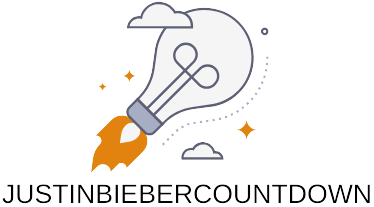Table of Contents
ToggleGeneration Z, often dubbed the “Zoomers,” has become the subject of countless memes and endless debates. From their affinity for TikTok dances to their knack for dismantling outdated norms, it’s easy to get lost in the stereotypes that swirl around them. But are these perceptions accurate, or just a comedic exaggeration?
Overview of Stereotypes of Gen Z
Stereotypes surrounding Generation Z often paint them as digital natives who can’t function without technology. Many view them as overly sensitive or politically correct, quick to cancel what they see as offensive. Observations suggest they prioritize mental health and advocate for social justice.
Another common stereotype labels Gen Z as lazy, primarily due to their unconventional work habits. They often choose flexibility over traditional job structures, seeking meaningful experiences instead of just financial gain. Critics frequently overlook the drive that many Zoomers exhibit in entrepreneurial ventures.
Many also describe Gen Z as self-absorbed, placing heavy emphasis on personal branding through social media. It’s important to note that this generation often utilizes these platforms to promote awareness about critical issues. Environmentalism stands out as a significant concern, as many Gen Z members actively push for sustainable practices.
Perceptions of Gen Z suggest a lack of loyalty compared to previous generations. Job-hopping appears common among them as they chase opportunities that align with their values. While this might seem disloyal, it reflects their desire for authentic engagement and satisfaction in their careers.
Lastly, Gen Z faces stereotypes linking them to short attention spans and an inability to engage deeply with content. While they often consume bite-sized information through platforms like TikTok, this doesn’t inherently indicate a lack of depth or critical thinking. Engaging with multiple forms of media can enhance their perspective rather than diminish it.
Common Stereotypes

Generation Z faces numerous stereotypes that shape public perception. Many of these views stem from their lifestyle, values, and behaviors.
Digital Natives and Technology
Digital natives thrive in an online world. They navigate technology like no other generation, using platforms for social interaction, education, and activism. Reliance on devices facilitates quick access to information, yet prompts critiques about attention spans. Critics label them as overly dependent on technology, misunderstanding the role these tools play in fostering creativity and connectivity. Social media serves as an avenue for expression while also being a source for knowledge. Engaging with diverse online content enhances their critical thinking and broadens perspectives.
Entitlement and Work Ethic
Labels such as entitled frequently attach to Gen Z due to differing workplace expectations. They value meaningful work and flexible arrangements over traditional employment benefits. Job satisfaction takes priority, driving them to seek roles that resonate with personal values and passions. Critics argue this preference indicates laziness, but many prove otherwise by pursuing entrepreneurship and creating their own opportunities. Their focus often leans toward work-life balance, challenging outdated notions of commitment and productivity.
Political Activism
Political activism runs deep within Gen Z culture. Social justice issues resonate strongly, prompting engagement through protests, online campaigns, and discussions. Many exhibit a heightened awareness of societal issues and advocate for change, often facing backlash for their bluntness. Critics perceive this commitment as sensitivity, but it reflects a strong moral compass and desire for progress. Environmentalism, equality, and mental health advocacy dominate their conversations. They strive to create a future that aligns with their values, making them a pivotal generation in shaping societal norms.
Impact of Stereotypes
Stereotypes significantly shape the experiences of Generation Z. Misunderstandings arise from social perceptions and media portrayals, often painting an inaccurate picture.
Social Perception and Media Representation
Social media platforms amplify stereotypes, leading to broad generalizations about Gen Z. While they embrace digital tools, critics often misinterpret their online interactions. Media representations frequently highlight superficial traits, overshadowing deeper engagement. Authentic moments displayed on platforms like TikTok can appear trivial, yet they often signal important social messages. Through digital storytelling, Gen Z advocates for causes such as climate action and equality. These representations sometimes miss the mark, simplifying a diverse generation into catchy but misleading tropes.
Effects on Mental Health
Mental health concerns often link back to negative stereotypes surrounding Gen Z. Labels like “sensitive” or “lazy” can lead to feelings of inadequacy or anxiety. Society’s expectations conflict with their desires for meaningful connections and stress management. Seeking authenticity, they may experience pressure to perform online, affecting their self-esteem. Stigmas surrounding mental health can prevent open conversations, fostering isolation rather than support. A focus on advocacy helps combat these issues, as Gen Z prioritizes wellness and community over conventional norms.
Countering Stereotypes
Countering stereotypes involves highlighting personal experiences and fostering dialogue to facilitate understanding. Many Gen Z individuals share narratives that challenge prevailing notions about their generation.
Personal Experiences and Real Stories
Real stories illustrate the complexity of Gen Z lives. An aspiring entrepreneur, one young person started a social media campaign focused on mental health awareness, pushing against stereotypes of laziness. Another individual combined technology with activism, leading community initiatives that emphasize environmental sustainability. Through creative projects, Gen Z continues to express authenticity while tackling critical social issues. These experiences reveal a commitment to action rather than apathy, reshaping how society views them.
Encouraging Understanding and Dialogue
Encouraging dialogue helps bridge generational gaps. Engaging conversations highlight the values that underpin Gen Z’s motivations. Platforms like TikTok offer spaces for sharing thoughts on significant topics, encouraging peers to participate in meaningful discussions. When they express their perspectives, it cultivates connection and empathy, allowing others to see the depth of their commitments. Communities can benefit from listening to Gen Z voices, ultimately fostering a shared understanding of their unique challenges and aspirations.
Understanding Generation Z requires looking beyond stereotypes that often misrepresent their values and behaviors. While they may be labeled as sensitive or lazy, these traits often stem from a desire for authenticity and meaningful engagement. Their commitment to social justice and mental health advocacy reveals a generation that’s not just aware but actively seeking to create change.
As they navigate a rapidly evolving world, Gen Z’s reliance on technology serves as a powerful tool for connection and creativity rather than a crutch. By fostering open dialogue and sharing personal stories, society can better appreciate the unique perspectives and challenges this generation faces. Embracing their differences can lead to a richer understanding and a more inclusive future.






